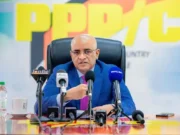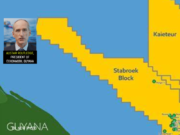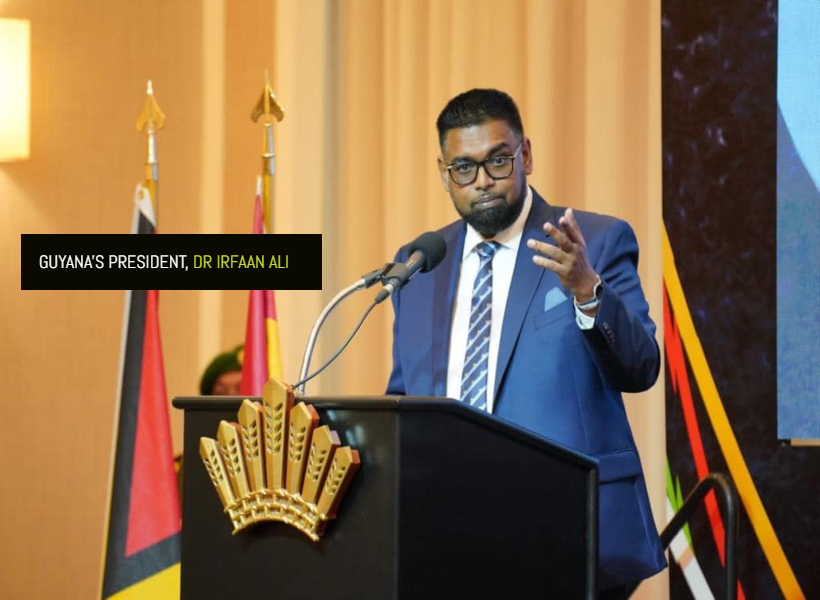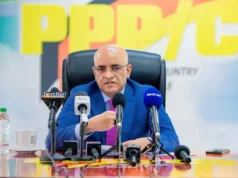During his contribution on Tuesday at the 33rd Inter-Sessional Meeting of the Conference of Heads of Government of CARICOM, currently being held in Belize, President Dr. Irfaan Ali unveiled his comprehensive strategic plan for tackling food security in the region along with the reduction of food imports by 25 percent by 2025. While there, he also urged member States to make use of a US$100M special concessional financing package that is currently available for the region.
Ali, in his capacity as Lead Head on Agriculture, Agricultural Diversification and Food Security for the regional body, was keen to highlight that coffee, cocoa, coconut, spices, hemp (industrial) and palm oil are high-value products that are imported into CARICOM States but have the potential for development in the region. For this to occur, he said investments must increase.
On average, Ali said CARICOM member states expend an estimated 2.1% of national expenditure on agriculture. However, President Ali implored that a significant increase is required of about 5% expenditure in agriculture by 2025 by each member state. He said Guyana is committed to expending 10% of the national budget to agriculture by 2025 in response to the food security risks that have gripped the region since the pandemic.
Further to this, the Lead Head for Agriculture reported that there has been concrete progress in access to financing for agriculture investment, financing through a facility called the CARICOM Sustainability Agriculture Credit Facility (the “Credit Facility”), using Republic Bank Limited as a lender.
Ali said this is a special facility designed for agriculture activities including, but not limited to, development of priority crops, capital equipment for farming, feeder roads to provide access to arable lands, bulk storage for crops, processing plants, shade house farming. It was at this point he made the major announcement that this provides funding for up to five years for repaying up to G$2b to Guyana and US$100m to all CARICOM member states, with interest rates as low as 2.5%.
The President urged that this should be taken advantage of while outlining other key components of his strategic plan.
Overall, the Guyanese President was commended by Heads of State and governments for driving the transformational agriculture agenda as well as for his display of passion and leadership in addressing this most critical issue of food security facing the region.











